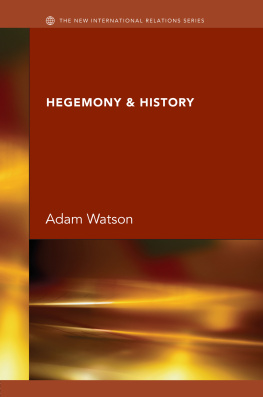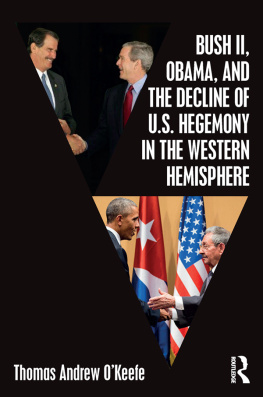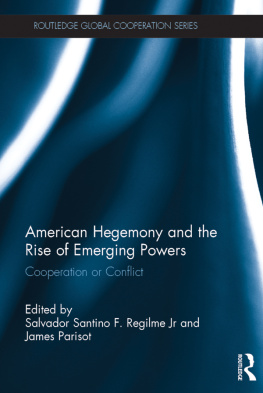First published 1998 by Berg Publishers
Published 2020 by Routledge
2 Park Square, Milton Park, Abingdon, Oxon OX14 4RN
605 Third Avenue, New York, NY 10017
Routledge is an imprint of the Taylor & Francis Group, an informa business
Published with the aid of the Swiss Academy of Humanities and Social Sciences in a hardcover edition of 400 copies.
Jrg Wassmann 1998
All rights reserved. No part of this book may be reprinted or reproduced or utilised in any form or by any electronic, mechanical, or other means, now known or hereafter invented, including photocopying and recording, or in any information storage or retrieval system, without permission in writing from the publishers.
Notice:
Product or corporate names may be trademarks or registered trademarks, and are used only for identification and explanation without intent to infringe.
Library of Congress Cataloguing-in-Publication Data
A catalogue record for this book is available from the Library of Congress.
British Library Cataloguing-in-Publication Data
A catalogue record for this book is available from the British Library.
Typeset by JS Typesetting, Wellingborough, Northants.
ISBN 13: 978-1-8597-3159-8 (pbk)
Jrg Wassmann
I
Allow me to begin with a personal remark.
Having grown up in Southern Switzerland, I therefore spoke Italian with my friends and at school; at home, however, I spoke a Swiss German dialect not becoming fluent in High German until much later, while studying in Basel (some of my colleagues question this fluency even today). I remember well how I had no school on Wednesday and Saturday afternoons and set out, first on foot, later with a small moped, to explore the surroundings: a rural area outside the city of Lugano (thus my subjective picture), with chestnut woods, open streams, clearly separated villages with old stone houses; the local dialect was spoken, there was no television. When I go back nowadays, I can see how my parental home has been swallowed up by suburbia, there are new buildings everywhere whose inhabitants for the most part did not grow up there (although my parents, after all, had also been newcomers), the streams are now running underground in pipes, there is a bus connection to the centre of town, a bank and two shopping centres; the language predominantly spoken now is a kind of television Italian. And I myself am playing around with my identity: in Germany, where I now live, I present myself as an affable Southern Swiss; when I am visiting my family, however, I pretend to be more of a down-to-earth Northern Swiss (while strongly doubting that anybody believes this) but, in every instance, I am trying to be different.
My personal comment seems to me to point to nothing out of the ordinary since most of us have experienced something similar, we are uprooted, having grown up in rural areas, having lived for a long time in urban centres or moving back and forth, and we are guided by clichs, such as that of ones own past as a place which is specific, traditional and unchanging. The problem is that these patterns of thinking cannot function any more today since what was formerly thought of as autonomous and regional (without this being the truth even then) today is increasingly being levelled by a universal Western lifestyle, by a McDonaldization which (superficially and temporarily) appears to tum everything into a uniform suburbia. Pier Paolo Pasolini, the Italian writer who originated in the Friaul and was killed in a faceless suburb of Ostia near Rome, in 1975 described the state of his Italy where:
The old cultural models are being denied. The people no longer want to have them . With the help of television, the centre has assimilated the whole of the rest of the country to its image, a country, after all, which has been incredibly varied in the course of its history and rich in indigenous cultures. A levelling process has been started which is destroying everything authentic and special. The centre has carried through its plan: that plan that modern industrialization wanted an industrialization that professes that ideologies other than that of consumption are absolutely inconceivable (1975:32).
Globalization is a key word of the present and, as such, a contested term. In the most general sense, globalization is a matter of increasing long-distance interconnectedness, at least across national boundaries, preferably between continents as well (Hannerz 1996:17). Two aspects seem to be different today: the mobility of human beings themselves, and the mobility of meanings and meaningful forms through the media. These interconnections have many faces. We interfere in the environment of other nations, for instance by cutting down the rain forests, by dumping toxic waste, by global warming; the goods we buy may come from far away; the proliferation of media technologies allows for ideas and the tangible shapes which are given to them to circulate without much regard for distance. With this increasing interconnectedness in the world, it is assumed, there is also a threat to cultural diversity, or at least to certain cultural variations, as Pier Paolo Pasolini put it. Clifford Geertz is also affected by this sense of cultural loss: We may be faced with a world in which there simply arent any more headhunters, matrilinealists, or people who predict the weather from the entrails of a pig (1986:253). This is often linked to an uneasy feeling that Coca Cola can be sipped anywhere, that Dallas can be watched, Barbie dolls can be played with; that we cannot recognize in the freely moving goods on the global market where and by whom they have been produced (the famous Swiss chocolate Toblerone is made by the American tobacco enterprise Philip Morris, and the ever-so-British After Eight mints, on the other hand, by the Swiss global player Nestl).
The concept of globalization is so controversial because it has become a trendy word used by anyone, anywhere and for anything, with a tendency to resort to hyperbole and excessive generalization, which in most cases is connected with the dichotomies so typical for the European intellectual tradition. Thus globalization becomes associated with a dramatic shift between before and after. But of course the interconnectedness across great distances is not altogether new. The idea that each culture was to have a territorial entity with clear, sharp, enduring edges never really corresponded to reality. There have always been interactions, and diffusion of ideas, habits and things. And the objects of the anthropologist, such as tribes and chiefdoms, were frequently already products of the colonial system and not part of a traditional before (Friedman 1994). In addition, globalization also implies the idea of a contrast between global and local associated with change and continuity whereby anthropologists in particular may show a tendency, caused by the tradition of their discipline which has focused on what is locally different, to think of the global as bad and to mystify the local. Finally, the context of centre and periphery also plays a role. At one end of the continuum, there is thus the culture of the centre, hence of the Western world, with greater although not always unambiguous prestige, at the other end are the cultural forms of the periphery, a creolized periphery more or less under constant pressure from the centre whilst itself creatively looking for autonomous answers.








